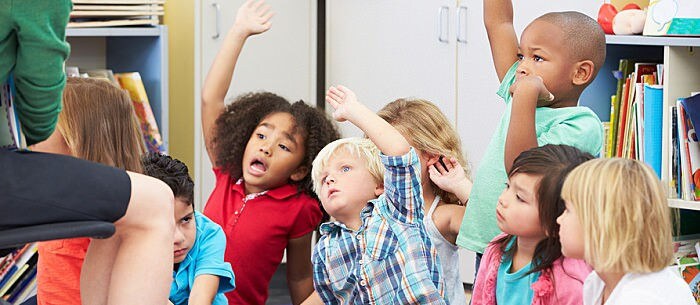By the time they are ready to start reception, your toddler will have morphed into an independent little person. At this age, your child’s physical and intellectual development will be growing by leaps and bounds every day, and it can sometimes be challenging to keep up.
Here’s how your child’s cognitive abilities will grow as they tackle the first year of primary school, and how you can support them:
Major Cognitive Milestones
Between the ages of 5 and 6, your child will tackle lots of learning basics. They will be able to count up to 10, learn the names of several colours and begin to gain a better grasp on the passing of time. In addition, they will be able to recite their phone number and have learned about common household items — for example, they will be able to identify and name different coins, though they may not have the arithmetic skills to use them yet.
Understanding cause and effect is an also important milestone at this age, and your child will feel more empowered as they perfect their problem solving ability by using reasoning and creativity. Parents should seek ways to instil confidence in their children so that they feel capable of handling new situations or problems they may encounter. Children at this age should also be playing a bigger role in taking care of themselves. They should know how to brush their teeth properly and remember to wash their hands after going to the toilet.
Parental Support
Parents can support their child’s cognitive growth in many simple ways; everyday activities can be used to reinforce academic lessons. For instance, when baking a cake together, let your 5-year-old help measure out the ingredients as you give directions. It is also important to talk regularly to children, asking open-ended questions and answering their questions as truthfully as possible.
Pay attention to the child’s specific interests in order to find ways to engage them more fully during teachable moments. For example, if your child loves dinosaurs but can’t sit still when it comes to numbers, try counting their dinosaur toys instead of regular counting blocks. Even better, take a trip to the museum and count how many fossils you find — special trips are a great way to spark a child’s curiosity.
As the transition to reception approaches, regular playgroups or extracurricular activities such as dance classes can serve as good ways to prep new students for the classroom if they haven’t already experienced nursery school or preschool. Organised sports are also a good way to support their development, and it is a great way for your tot to learn more about following directions and to practice quick thinking.
When coming up with creative solutions to help your child thrive both at home and in school, it’s important to remember that you don’t have to do it alone. One of the best ways to support your children during these years of rapid intellectual development is to communicate and work together with all those involved: this includes their teachers, nannies other relatives, and most importantly them! In this way, your little one can begin to understand themselves as a learner and valued member of the community.
